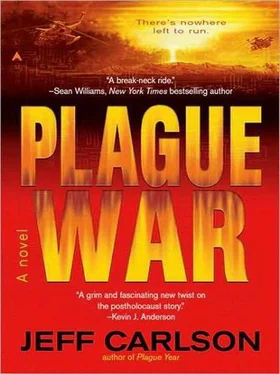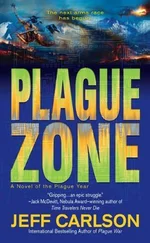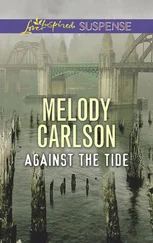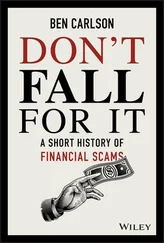Jeff Carlson - Plague War
Здесь есть возможность читать онлайн «Jeff Carlson - Plague War» весь текст электронной книги совершенно бесплатно (целиком полную версию без сокращений). В некоторых случаях можно слушать аудио, скачать через торрент в формате fb2 и присутствует краткое содержание. ISBN: , Жанр: Триллер, на английском языке. Описание произведения, (предисловие) а так же отзывы посетителей доступны на портале библиотеки ЛибКат.
- Название:Plague War
- Автор:
- Жанр:
- Год:неизвестен
- ISBN:1-4362-4416-1
- Рейтинг книги:3 / 5. Голосов: 1
-
Избранное:Добавить в избранное
- Отзывы:
-
Ваша оценка:
- 60
- 1
- 2
- 3
- 4
- 5
Plague War: краткое содержание, описание и аннотация
Предлагаем к чтению аннотацию, описание, краткое содержание или предисловие (зависит от того, что написал сам автор книги «Plague War»). Если вы не нашли необходимую информацию о книге — напишите в комментариях, мы постараемся отыскать её.
Plague War — читать онлайн бесплатно полную книгу (весь текст) целиком
Ниже представлен текст книги, разбитый по страницам. Система сохранения места последней прочитанной страницы, позволяет с удобством читать онлайн бесплатно книгу «Plague War», без необходимости каждый раз заново искать на чём Вы остановились. Поставьте закладку, и сможете в любой момент перейти на страницу, на которой закончили чтение.
Интервал:
Закладка:
How many more? he wondered, and bumped into a soldier cutting across the sidewalk to the door of a shop. A captain, he realized. “Excuse me,” Ulinov said, being careful with his enunciation. He had the proper identi‚cation, but he didn’t want to be stopped for something as simple as his accent. He was already going to be late.
The captain barely glanced at him, though, before moving inside. Black spray paint covered the old shop name. CAV4. The graf‚ti was everywhere and Ulinov tried to remember it all. FBI F2. ODA S/S. Everything went into his reports, and to him it looked as if Leadville was doing much more than reinforcing what was already a powerful base. He believed they were mounting an attack. But where?
There were rumors, of course; the obvious air war; stories of nanotech weapons and stories that Ruth turned traitor with another new device; word that James Hollister had been executed and that many others were in jail or under house arrest.
Ulinov knew it would only be a very short time now before he was caught out himself.
* * * *
In a small room in an old hotel — a small, private room with electricity and a computer and two phones — Ulinov met with Senator Kendricks and General Schraeder. His tension worked in their favor, yet there was no concealing it. Still, he tried.
Kendricks clearly enjoyed the moment, surveying Ulinov’s face as they exchanged mundane greetings. “Good morning, Commander. Have a seat. Can I get you anything to drink? A Coke?” He produced a red can from his desk.
Ulinov knew the unopened soda was worth ‚fty dollars on the street, and Kendricks liked to do little favors. He nodded. “Yes. Please.”
“And how’s that leg of yours?”
“I am improving. Your doctors are excellent.” Ulinov had been on the †ight deck of the space shuttle Endeavour when it crash-landed on the highway outside of town, taking shrapnel through the windshield and killing their pilot.
“Good,” Kendricks said. “Good. Glad to hear it.”
Ulinov was patient, accepting the Coke and then lifting it like a salute. “Thank you.”
Kendricks nodded his head and his broad cowboy hat in a slow, serious movement. The white Stetson was his signature mark and he also dressed himself in string ties on plain blue work shirts. He was clean-shaven. Ulinov suspected the man had worn a suit in Washington, but Colorado was his home territory and most of the survivors in town were local or at least from the surrounding West. A good part of the military had also been based in this state.
Ulinov didn’t think there had been any elections, nor did he suspect there would be, but it must be easier, playing the caricature. People wanted the traditional to steady themselves against so much loss and suffering. In his mid-‚fties, ‚t and strong, Lawrence N. Kendricks made a good father ‚gure.
General Schraeder might have tried to model himself in the same image, learning from the senator. He kept his dark hair longer than the cliché military man, softening the stern image of his Air Force uniform, ribbons, and insignia. The extra length also partially hid the strip of gauze on his ear, where Ulinov guessed that a precancerous melanoma had been removed.
Schraeder lacked the ego that gave Kendricks his unshakeable con‚dence, however. Maybe it was only that Schraeder had witnessed more destruction and failure up close. He was usually as tense as Ulinov, and today it showed. The general was stiff and quiet. He was a henchman.
But don’t ignore him, Ulinov thought, drinking from his sugary, ‚zzing Coke. The two of you have more in common, and Schraeder may actually want to help if the senator lets him.
Since the ‚rst days of the plague, Kendricks had never been farther than eight slots from the pinnacle of the American government. A helicopter accident had killed the president in the evacuations out of the East Coast, the vice president assuming that role himself, and in the chaos the Speaker of the House ended up in Montana, which soon went over to the rebels.
The end of the world had been good to Kendricks. And if there was a coup attempt that was put down in recent days, the senator appeared to have come out of it even more perfectly positioned. Kendricks and Schraeder already held two of the seven prized seats on the president’s council, and Ulinov suspected the top leadership had recently been pared down to four or ‚ve. In his prior meetings he’d sat down with the whole group, but two days ago that had changed.
Kendricks was adept and opportunistic, extremely sharp beneath the show of being a lazy cowboy. The man is a bear, Ulinov thought, afraid of nothing and always hungry .
How can I use that against him?
“Well, it looks like it’s as bad as we were thinking,” Kendricks said at last, rapping his knuckles on his desk and then gesturing with the same hand at Schraeder. “We can’t afford to give you any planes right now.”
“It is dif‚cult,” Ulinov agreed blamelessly.
“Still, there’s no question that it’s in our own best interest to help your folks way over there,” Kendricks continued, folding his hands. “It’s just a matter of how many planes we can dedicate to the job. How many and when.”
Ulinov only nodded this time, struggling with his resentment. Does he want me to beg?
He’d known this was coming. Two days ago Kendricks had given every signal that their deal would change, calling Ulinov in to lecture him on the problems presented by the rebel uprising… and yet the American civil war was a tri†e compared to what Ulinov’s people were facing.
Their motherland had been abandoned almost completely. The tallest peaks in the Urals fell short of even two thousand meters. Otherwise Russia possessed only a handful of icy mountains very close to the Chinese and Mongolian borders, plus a few small safe zones in deepest Siberia and along the Bering Sea. From the ‚rst reports out of California to the time that the machine plague swept into Europe, the Russians had barely a month to relocate their entire nation even as dozens of other countries claimed and then fought for elevation.
By accident, humankind had begun global warming in time to do themselves a lot of good. There was evidence that the trend was at least partly natural, easily blamed on volcanic activity and a pendulum-like cycle from warmer eras to ice ages and back again — but eighty years into the greatest population boom the world had ever seen, endless gigatons of smoke and exhaust had tipped the balance in the atmosphere.
It was the upper reaches of the planet that began to show the effects ‚rst. There were still cold spikes, but by the late 1990s the evidence was too conspicuous to disbelieve. Snowfall became rain. Frozen ground relaxed and thawed. There were also more landslides and †oods, but the acceleration of greenhouse gases had made every difference between life and death in the plague year. The warming created more useable ground for survivors even if it was just a few meters at a time.
All of Europe clashed in the Alps. China and India rose over the central Himalayas like human tides. There were also safe zones within Iran, and Russia had economic and political ties there, but the Iranians detonated fourteen dirty bombs along their borders to beat back their Arab neighbors. The wind was wrong. Fallout left too much of the Iranian high ground contaminated, not at lethal levels but deadly in the long run.
The Russians †ed to the mountain ranges of Afghanistan and to the Caucasus, a sheer jag of rock thrust up between the Caspian and Black Seas. They were outnumbered in both places by refugee hordes from across the Middle East, but at the same time, they were correct in believing they would outgun their enemies. It didn’t last. Air superiority meant nothing without reliable maintenance, fuel, and ordnance. Their tanks and their artillery also wore down. On some fronts the pitiless land war was already being fought with rocks and knives, and the Muslims’ numbers quickly gave them the advantage.
Читать дальшеИнтервал:
Закладка:
Похожие книги на «Plague War»
Представляем Вашему вниманию похожие книги на «Plague War» списком для выбора. Мы отобрали схожую по названию и смыслу литературу в надежде предоставить читателям больше вариантов отыскать новые, интересные, ещё непрочитанные произведения.
Обсуждение, отзывы о книге «Plague War» и просто собственные мнения читателей. Оставьте ваши комментарии, напишите, что Вы думаете о произведении, его смысле или главных героях. Укажите что конкретно понравилось, а что нет, и почему Вы так считаете.












